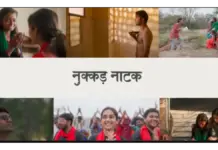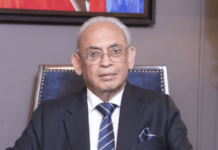Dharma Productions’ Gori Tere Pyaar Mein! (UA) is a love story of a lazy, good-for-nothing, South Indian boy living in Bangalore and a hard-working social activist North Indian girl. Sriram Venkat (Imran Khan) is lazy and wears his heart on his sleeve. His father (Nizhalgal Raviee) is fed up of him and calls him a black spot on the family name. His marriage is fixed with Vasudha Natrajan (Shraddha Kapoor in a friendly appearance), a pretty Tamilian who loves a Sikh, Kamal (Tanvir Singh). Vasudha requests Sriram to decline her hand in marriage as she herself doesn’t have the guts to tell her parents about her love affair with a Sikh boy. But Sriram decides against taking up for her. The wedding preparations begin and soon, the celebrations start. Sriram and Vasudha get time to spend with one another, and Sriram uses the opportunity to tell her about his affair with Dia Sharma (Kareena Kapoor), the passionate social activist.
The affair between Sriram and Dia had started on a wrong note but the two soon hit it off very well. However, the romance had come to an end when Sriram had brokered the deal for the very plot of premium land on which Dia had wanted to build an orphanage. Vasudha makes Sriram realise that he still loves Dia as he remembers every little detail about their love story. Sriram had also kept a tortoise as a pet on Dia’s suggestion. Even as Vasudha is ready to sacrifice her love for Kamal, she, with all good intentions, prods Sriram to run away from the wedding and return to his true love, Dia. Sriram sees sense in Vasudha’s suggestion and runs away from his own wedding.
Dia is now in a village in Gujarat, fighting to have a bridge constructed over a river so that the lot of the villagers could be improved. Sriram, who hates village life, soon finds himself in the village, helping Dia and putting his architecture education to use in constructing the bridge. As the construction of the bridge begins, Dia is full of admiration for Sriram but only till she realises that he had done something behind her back, the consequences of which could be disastrous. Cracks develop in the relationship between Dia and Sriram and the latter leaves the village. The bridge construction work is stalled for various reasons.
What is it that Sriram had done for the blossoming love story to come to an end again? Does Sriram make amends? Does he return to his family in Bangalore after leaving the village? Or does he come back to the village? Does Dia call him back? Does the bridge get completed?
The story of a boy meeting a girl, the two falling in love, breaking up, and meeting again is not unusual. However, Arshad Syed and Punit Malhotra have peppered their story with interesting incidents in their screenplay so that the audience’s interest is kept alive. The first half is light and breezy with a number of fun moments for the youth and multiplex audience. From the city, the scene shifts to the village after interval and it is this portion which is not half as entertaining and engrossing. Of course, the writers have not sacrificed the fun element post-interval but the plot itself becomes a bit serious, which is too much in contrast with the racy, youthful first half. Also, the whole angle of constructing a bridge for the villagers seems a bit too huge a task for a social activist to take up single-handedly. Since the job is humongous, the solutions seem to be rather childish – whether by luring the minister with the proposal to name the bridge after his late mother or by bribing the collector, Lateshbhai (Anupam Kher).
Having said this, it must also be mentioned that it is the humour in the second half, which doesn’t let that part degenerate completely. Besides, there are some twists and turns in the drama, which surprise the audience and re-ignite their interest in the film at regular intervals. Also, the love story between Sriram and Dia remains interesting with the highs and lows that it passes through. Climax is truly weak.
Another point to be noticed is that the script has been very painstakingly written, without any loose ends. Early on in the drama, Sriram is taunted by his father about how nobody would want him as a role model, and Sriram tells him in the pre-climax that he has become a role model for someone; Sriram dissuades a tongue-tied Kamal from marrying Vasudha by posing rhetorical questions to him, but Kamal (who had not answered any questions at the time) clears his stand later in an sms to Vasudha, which she reads out to Sriram; Dia jokes with Sriram about collector Lateshbhai shaving the hair off his legs for the love of Sriram, and the collector does exactly that in the climax though he admits, he doesn’t know why Sriram asked him to do so; to a query from Sriram and Dia, the little boy in the village replies that he is not sure about what he would like to become when he grows up, but he reveals his aspirations to Sriram when he is leaving the bridge construction project midway; the Tamil custom of the bride’s father pleading with the groom to marry his daughter, just before the wedding ceremony, and the groom’s family prodding him on to run away from the marriage has first been established innocuously but used very engagingly at the time when Sriram is about to marry Vasudha. These interesting points in the script will not be lost on the audience. Dialogues, also penned by Arshad Syed and Punit Malhotra, are witty and very nice.
Imran Khan does a fine job and performs ably. He is entertaining enough as per the demands of the role. Kareena Kapoor looks gorgeous and glamorous and she also acts very effectively. Shraddha Kapoor stands her own in a friendly appearance and acts well. Nizhalgal Raviee (as Sriram’s father) and Sujatha Kumar (as Sriram’s mother) lend good support. Anupam Kher has his entertaining moments as collector Lateshbhai. Neelu Kohli (as Dia’s mother) and Manoj Bakshi (in the role of Dia’s father) provide able support. Anandi Ramachandran (as Vasudha’s mother), R. Balasubramaniam (as Vasudha’s father), Sreekant K. (in the role of Sriram’s elder brother, Jayram), Kalyani (as Sriram’s sister-in-law), Tanvir Singh (as Vasudha’s beloved, Kamal), Sachi Maker (as Joshna), Vallabh Gada (as Mohanbhai), Madhav Gogte (as Lateshbhai’s father), Kavish Majumdar (as Bhavtesh), Vineet Singh (as Mahato), Bhamini Oza (as Laali), Farzil Pardiwala (as Budhna), Jatin Sharma (as Rattan) and Feroz Bhagat (as Kirtibhai) leave their individual marks.
Punit Malhotra’s direction is effective. Despite a not-so-engaging screenplay after interval, his narrative style manages to keep the audience entertained. He has also extracted good work from out of his cast members. Vishal-Shekhar’s music is very good. The ‘Tooh’ and ‘Chewing gum chabaa ke’ songs are very popular. All the other songs are also appealing, their picturisations (Remo D’souza; ‘Dil duffer’ song choreographed by Jayesh) adding brilliantly to their overall appeal. Lyrics (by Anvita Dutt, Kausar Munir and Kumaar) go well with the film’s mood and characters. Salim-Sulaiman’s background music is extraordinary. Mahesh Limaye’s cinematography is splendid. Shashank Tere’s sets are lovely. Akiv Ali’s editing is sharp.
On the whole, Gori Tere Pyaar Mein! has an interesting first half but the post-interval portion, to a large extent, mars the impact because it does not go well with the first part. It has hardly anything for the single-screen cinema audience because the humour is more class-appealing. At the box-office, it will not be able to do much. If it still manages to sail safe, it will be because of recoveries from sale of satellite and audio rights. Its performance Overseas will be quite alright.
Released on 22-11-’13 at Regal (daily 3 shows), Eros (daily 1 show), New Empire (daily 1 show) and other cinemas of Bombay thru AA Films. Publicity: very good. Opening: below the mark. …….Also released all over. Opening was dull at many places. However, collections did pick up as the day progressed.




























